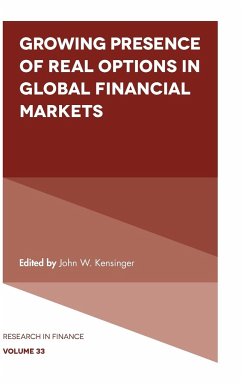
Using Real Options to value the impact of climate change
A case study of Sappi, a South African pulp and paper company
Versandkostenfrei!
Versandfertig in 6-10 Tagen
45,99 €
inkl. MwSt.

PAYBACK Punkte
23 °P sammeln!
Research has shown that climate change impacts on company value are uncertain, significant and strategically important. The challenge is for the business community to apply financial valuation models that support the incorporation of the climate change impacts in strategic planning. However, the commonly used discounted cash flow techniques in capital budgeting are seen as failing to address the high levels of uncertainties inherent in climate change impacts. Real options thinking has been touted as having the potential to enhance understanding of these impacts via its direct handling of uncer...
Research has shown that climate change impacts on company value are uncertain, significant and strategically important. The challenge is for the business community to apply financial valuation models that support the incorporation of the climate change impacts in strategic planning. However, the commonly used discounted cash flow techniques in capital budgeting are seen as failing to address the high levels of uncertainties inherent in climate change impacts. Real options thinking has been touted as having the potential to enhance understanding of these impacts via its direct handling of uncertainty, although not much research has been done to demonstrate this. This research applies the real options approach in a setting that exhibits climate change impacts, with the objective of contributing to the narrowing of the gap between finance theory and business practice.












